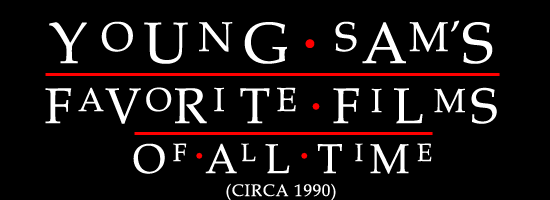No. 18: ALIENS

Reviewed by Sam Hatch
AS THIS IS PART OF A RETRO NOSTALGIA BINGE AS OPPOSED TO A TRADITIONAL REVIEW, THERE MAY BE SPOILERS PRESENT IN THE TEXT.
This is one of those rare occasions where a film sequel is/was considered just as good as (if not better than) its predecessor. I did love Ridley Scott's Alien at the time of this list's writing, but I was still held in thrall by James Cameron's incredibly ambitious action-fueled follow-up. Sigourney Weaver held out for years before agreeing to do a sequel to the ground breaking, genre-bending space horror original, and rightly so. It took Terminator director James Cameron to see the potential to spin the story in a different direction, and his affinity for writing strong female characters helped evolve Ripley's tale into that of a legitimate saga.
Taking place eighty years after the original film, Ripley's drifting escape shuttle is finally located by a team of space scavengers. She finds it hard to assimilate back into (post) modern culture, and in the expanded edition of the film she learns that her only daughter died on Earth of old age. The sole person who appears to be on her side is the slimy Carter Burke (played by comedian Paul Reiser!), who talks in placating tones and doesn't hide the fact that his loyalties lie elsewhere. Indeed, his one and only affiliation is with the Weyland Yutani corporation. The same soulless entity that owned the spacecraft Nostromo, which Ripley hastily detonated at the end of the first film in order to destroy the seemingly unstoppable alien creature.
The businessmen (and women) of the corporatation don't believe Ripley's vivid tale, and inform her that the derelict planet on which her crew originally found the deadly menace has since been terraformed and colonized by entire families. Soon enough, contact with the colony ceases, and a representative of the Space Marines comes sniffing at Ripley's door in the hopes that she'll join their expedition - just in case her story proves to be true. Ripley's tortured, nightmare-addled life is well written, and Burke knows just which buttons to push to heighten her discomfort and force her to take part in the excursion.
The Marines are great, with Bill Paxton as the wiseass coward-turned-hero amalgam Hudson, and Terminator costar Michael Biehn as the soft-spoken Corporal Hicks. Ripley has an uncomfortable meeting with the ship's android Bishop, played by Cameron regular Lance Henrikson, which follows an incredible scene in which Bishop demonstrates his amazing dexterity with knives. Once the Marines land on the seemingly abandoned planet, things go wrong after a set of eerily silent scenes of tense exploration. Soon they encounter the unlikely survivor Newt, an extremely survival-savvy young girl who immediately triggers Ripley's unsated motherly instincts.
Once the battles ensue, they are doozies! They're also enhanced by James Horner's unyielding, percussive (not to mention brassy) score. I remember my heart racing like crazy during the initial encounter with the aliens, as Ripley tears ass through an industrial complex in a gigantic troop transport vehicle. Cameron knows how to execute action sequences like nobody's business, and this side of Japanese anime few in the science-fiction field pay as much attention to the detail of their imagined worlds. He also excels at using 'passé' techniques such as rear-projection to great effect.
This film was also groundbreaking for its depiction of Ripley's character as a female warrior, essentially an estrogen-laden equivalent to Stallone's Rambo character. Cameron had no problem with his women characters being bigger badasses than their male counterparts, and neither did audiences. Ripley was a survivor in the first film, but more akin to Jamie Lee Curtis' Laurie Strode from Halloween - albeit more confident from the outset. But Aliens took that ball and ran with it. Ripley gives the alien hordes holy hell, and even faces down with the heretofore-unseen alien queen, a concept Cameron dreamed up on his own without the help of original creature designer H.R. Giger.
Some still prefer the original theatrical cut to the special Director's Cut released on home video in the early nineties, but I love the latter's inclusion of the early colony-establishing scenes as much as the Tim 'The Toolman' grunt-inducing autocannons that appear later in the film. Whatever you do, don't watch it at night, because they mostly come out at night. Mostly.